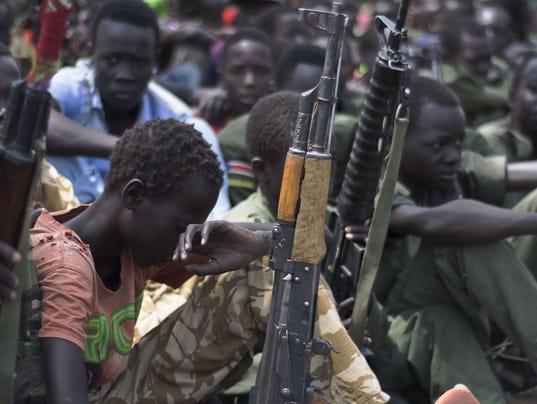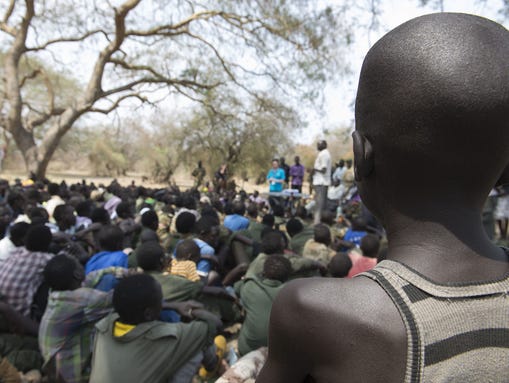
At least 89 boys, some as young as 13, were abducted by an armed group in South Sudan, the United Nations children’s agency said Saturday.
The abductions took place near Malakal in the northern part of the country, UNICEF said in a statement. The actual number could be higher, the agency added.
Armed soldiers surrounded the area and searched house to house in the community of Wau Shilluk in Upper Nile State, taking boys older than 12 by force, witnesses told UNICEF.
The abductions were carried out while the children were taking exams. UNICEF didn’t say what group may be responsible for the kidnappings.
In the past year, 12,000 children — mostly boys — have been recruited and used as soldiers by armed forces and groups in South Sudan, according to the United Nations.
“The recruitment and use of children by armed forces destroys families and communities,” Jonathan Veitch, UNICEF Representative in South Sudan, said in a statement. “Children are exposed to incomprehensible levels of violence, they lose their families and their chance to go to school.”
South Sudanese government officials have strongly denied the allegations, saying standing orders forbid the military from recruiting children, the Associated Press reported. Rebels had not responded to the charges.
However, Human Rights Watch reported Monday that South Sudan’s government forces and rebels are actively recruiting boys as young as 13 — often by force — as soldiers in Malakal, which has seen intense fighting between government troops and rebel forces.

“Despite renewed promises by both government and opposition forces that they will stop using child soldiers, both sides continue to recruit and use children in combat,” Daniel Bekele, Africa director at Human Rights Watch, said in a statement. “In Malakal, government forces are even taking children from right outside the United Nations compound.”
The current conflict began in December 2013 when fighting broke out between government troops led by President Salva Kiir and opposition forces led by former vice president Riek Machar.
Since late January, UNICEF has overseen two sets of demobilizations of child soldiers.
On Feb. 11, the agency celebrated the release of 300 children from an armed group. Two weeks earlier, it held a ceremony marking the release of nearly 250 children. Some of the child soldiers had been fighting for up to four years and many had never attended school, the agency said.
“For every child released, it’s the chance for a new life,” Veitch said in a statement. “We are witnessing the negative consequences that being in an armed group has had on the boys; some are withdrawn while others exhibit violent and aggressive behavior. Instead of playing, they march up and down.”
UNICEF estimates the costs for the release and reintegration of each child is about $2,330 over the course of two years.
“To avoid the risk of re-recruitment and to ensure that each child can fulfill their potential, they need a protective environment where they not only receive food and water, but also counseling, life skills and the opportunity to go back to school,” Veitch said.

Young boys attend a ceremony of the child soldiers disarmament, demobilization and reintegration in Pibor overseen by UNICEF and its partners on Feb. 10, 2015
